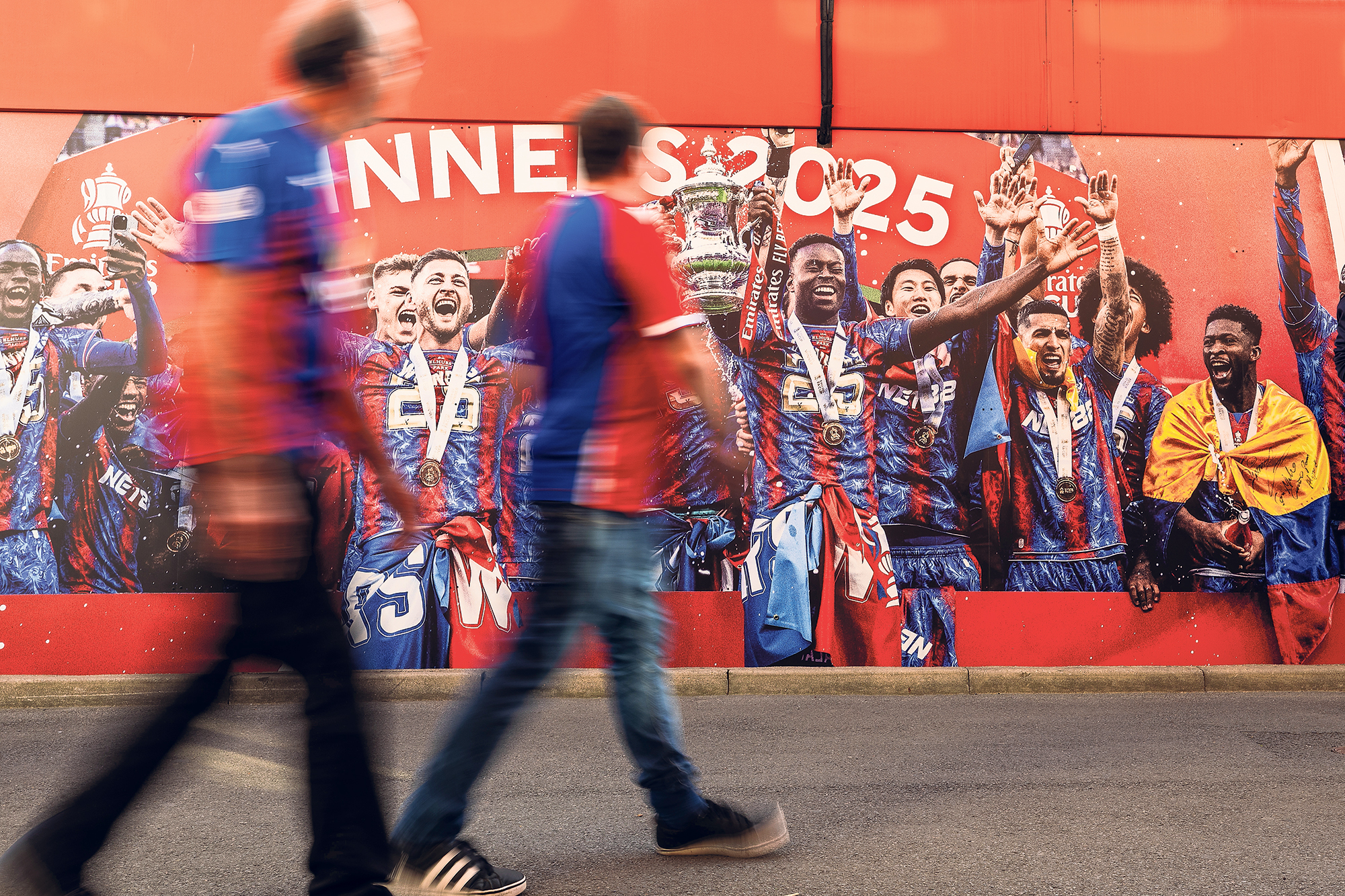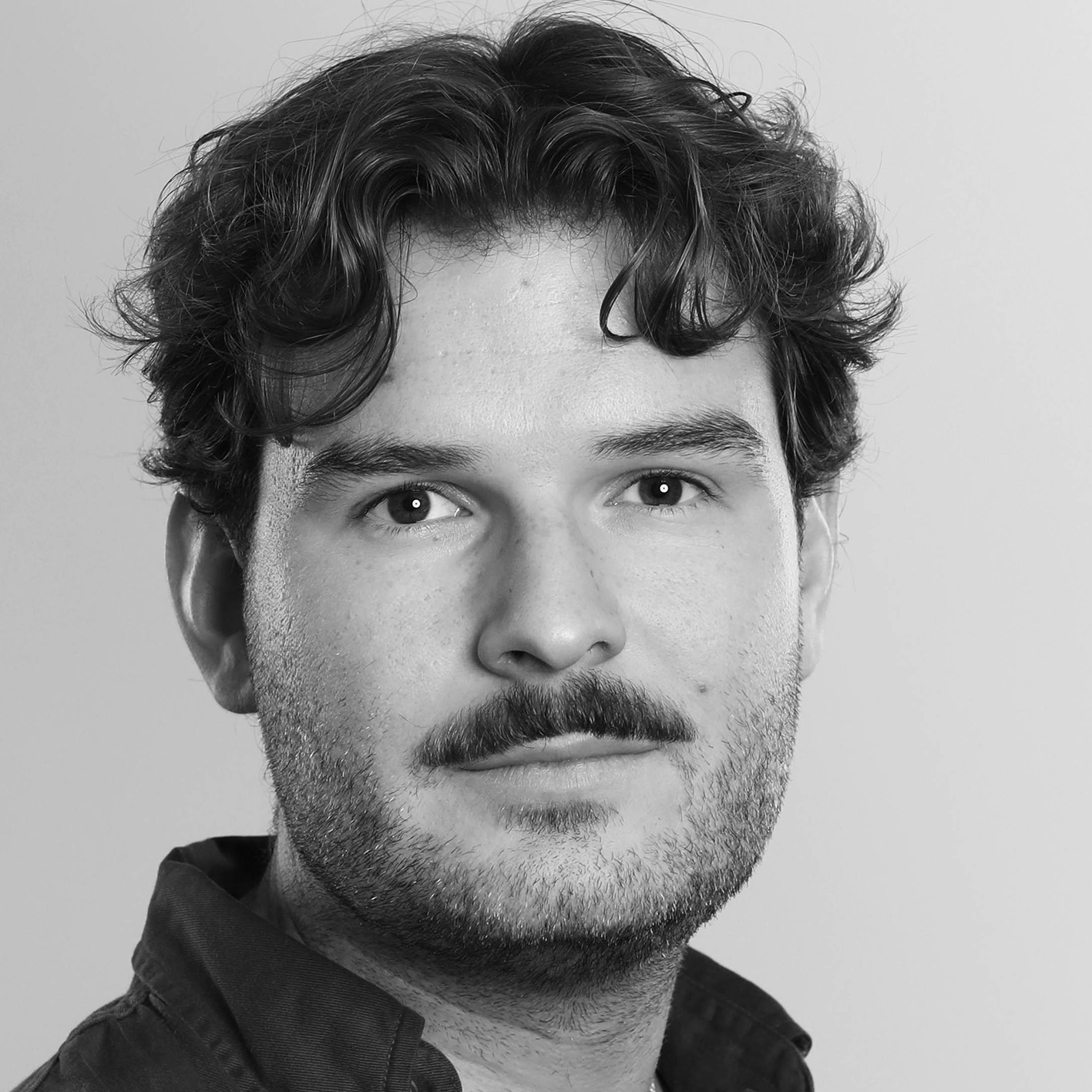The October nights are closing in, yet everything at Crystal Palace is bathed in a warm, satisfied light. A confluence of circumstance and fate has created a perfect moment in time, a world most supporters never believed possible, a wave of unfettered optimism and joy.
This is the best time ever to have been a Palace fan. For all the understandable farrago around their Conference League demotion, Fredrikstad, Lublin and Strasbourg are bizarrely beautiful cultural hubs for away days – a Norwegian port, Poland’s eighth-largest city, and the seat of European bureaucracy – and yet that somehow only adds to a sense of originality and magic. To boot, the flights are cheap and the beer is cheaper.
The FA Cup. The Community Shield. Flying high in the Premier League, 19 games unbeaten – the longest such streak in Europe. Oliver Glasner is already the most successful Palace manager ever, having lost just 20.8% of his matches. You get to watch Adam Wharton twice a week, one of the great privileges of modern football. Matthew McConaughey said last week he was a supporter. Anyone around the club who predicted this a year ago would and should have been laughed out as a fantasist, in the fog of a decade-long mediocrity which repeatedly threatened to degrade into outright apathy. Everything is coming up Palace.
There is something wonderfully inexplicable, almost alchemical, about how Palace have got here. A significant part of it is coaching – six of the starters against Liverpool also started in Roy Hodgson’s final match, alongside Will Hughes and Jefferson Lerma, who came off the bench last Saturday. Players have become provably better, but as Glasner so often says, the team is more important than individuals.
The players have become better but there is also no asterisk of human rights or owner exploiting loyalty
The players have become better but there is also no asterisk of human rights or owner exploiting loyalty
This is about interpersonal relationships and on-pitch connections, a stability only achievable when every part of a whole unites simultaneously, everyone pulling in the same direction. You can look at Tyrick Mitchell’s attacking numbers and see they have improved. You can appreciate that Chris Richards, Marc Guéhi and Maxence Lacroix have 11 clean sheets in 21 Premier League games together.You could dedicate 10,000 words to Jean-Philippe Mateta’s reinvention from tragicomic meme machine to French international. There’s lots of vertical passing and set-piece stuff here, detail about effective coaching of underperforming talent, of working with what you are given, which would put plenty of elite managers to shame.
Yet even the assumption that this is simply the product of Glasner’s genius doesn’t quite follow. He has never before been so popular or well received, an honest and charming if vaguely impenetrable figure. After his departure from Wolfsburg, captain Josuha Guilavogui said he was “very glad [Glasner]’s gone”. This is the Claudio Ranieri effect, the right coach meeting with the right players at the right club at the right time.
Perhaps the most impressive tenet of Palace’s success is that they have achieved it without sacrificing their identity or dignity, largely resisting globalisation or delocalisation, still freighted with a tangible connection to their past. They only have to look across London at West Ham to see how wrong this can go. There have been few shortcuts. The model is still financially sustainable. The centre has held.
Even the frustrations are traditional footballing frustrations; having to sell your best players, occasional discontent at an owner scarred by past threats of liquidation, always one more transfer from the big time. There is a planned remodelling of Selhurst Park’s Main Stand, which has been delayed as costs spiral, but no talk of total redevelopment or relocation, an atmosphere protected and preserved.
There is no asterisk of lingering human rights abuses to excuse, no owner exploiting their loyalty. They are no longer part of a multi-club ownership structure, and those within the club deny ever being in one.
This is not really supposed to be possible in 2025, what once was a viable window of opportunity now more a trick of the light. Palace’s success is the product of excellent planning and coaching and recruitment but also of great fortune. The squad – particularly the starting XI – fits together with a delicate brilliance, yet this makes it incredibly susceptible to injuries or losses of form. Glasner is volatile and ambitious, not appearing desperate to sign a new contract with his current deal expiring at the end of the season. One way or another, Guéhi will have left by next July, with Wharton likely to follow. The vultures will circle once more.
Newsletters
Choose the newsletters you want to receive
View more
For information about how The Observer protects your data, read our Privacy Policy
But in an increasingly repetitive footballing stratosphere, novelty is a blessing. We need to believe this can happen, and happen without clubs eating themselves to get there, without trading on their sense of self or traditional fanbase or future. The Premier League doesn’t do fairytales any more, an all-consuming maw too desperately in thrall to its own scale and growth prospects, obsessed with bigger and better.
In hindsight, Leicester’s Premier League triumph was not a font of renewed optimism but the death rattle of the illusion of mobility, the last chopper out of Saigon for the mid-sized club.
And so to fill the void we have to take what we can get, these miracles in miniature, memories and folklore. It’s not going to last. Palace will not win the title, and almost certainly will not qualify for the Champions League, however good their underlying statistics are today. European football will grind them down, even if they should win the Conference League. Injuries will create gaps they cannot fill. The inevitabilities of economy and scale will persevere, as they so often do.
But that shouldn’t matter. This doesn’t have to be viewed as part of a journey, as a step towards some grand future. This, here, is the destination. It can just be appreciated as it is, enjoyed as it happens in Europe’s minor cities and the glossy backyards of superclubs. Football is in an era where nothing ever seems enough. But for Palace, these halcyon days can be.
Photograph by KontentHaus/Getty Images



